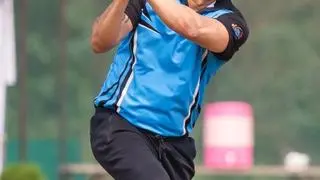The Special 301 Report, an annual feature from the US that evaluates global intellectual property (IP) protection and enforcement in other countries, is expected to be out on or before April 30.
The report ranks countries depending on the inadequacy of IP protection and enforcement into two categories -- priority foreign country (PFC) and priority watch list (PWL). While a PFC grading obligates the US Trade Representative (USTR) to initiate unilateral measures like suspension of trade concessions in case of failure of negotiation, the PWL increases “bilateral attention concerning the problem areas.”
India is in the PWL category for more than 15 years. And its status will continue because unlike 2014, there is no demand from the pharmaceutical IP lobby to categorise India as a PFC.
India’s grade follows complaints made against its patent and drug laws, as seen in the many submissions to the USTR. One such complaint is that the Indian Patents Act, especially Section 3 (d), blocks innovation by preventing patent protection on known chemical substances. In fact, what this section does is prevent multiple patents on a known substance.
The other grouse involves the grounds for granting compulsory licence (CL) like the lack of “local working” i.e., it is not produced or made available locally. Here, the pharma IP lobby ignores the Doha Declaration of the TRIPS (Trade Related aspects of IP Rights) Agreement on public health, which clearly states that every WTO Member State has the right to determine grounds for granting CL.
Another point of contention is that the Drugs and Cosmetics Act does not police the infringement of patents that takes place when marketing approvals are given to generic companies on medicines patented by someone else. In fact, the drug regulator also does not provide data exclusivity for clinical trial data and approves generic medicines through an abbreviated procedure, they say.
Contrary to pharma’s complaints, Boeing, in its submission to the USTR, said that “The Boeing Company conducted a detailed review and determined that India maintains adequate Intellectual Property Rights legal framework for the company’s aerospace and defence products… …Boeing continues to have a positive experience with Indian customers, partners, and suppliers on IPR protection”. Trade law experts doubt that much will come out of the Special 301 report. According to them, in 1999, the US assured the WTO Dispute Settlement Panel that it would not initiate any unilateral measures without the exhaustion of options under the Dispute Settlement Undertaking. This means the US is supposed to approach the WTO before taking any action against India on the basis of the Special 301 Report.
But, even as this happens, India’s approach to the US seems to have changed. And the Government has agreed to bilateral engagement with the US through a high-level IP working group.
The decision to formulate the National IP policy has only increased pressure from the US IP maximalist lobby. And according to reports, in the name of creating an enabling environment for foreign investors to “Make in India”, officials are said to have given assurances, which undermine public policy objectives of the Patents Act.
One such assurance said to be given is the non-issuance of CL for commercial use. And irrespective of the official denial, the rejection of CL application for Saxagliptin is being seen through this lens.
Policy-makers in India should understand that the Special 301 Report is merely a pressurising tactic without legal sanctity under international trade laws. Therefore, the Government should not take any legal or policy measures to curb the public interest safeguards built into the Indian Patents Act, which is emerging as a model law for other developing countries. Because, this will mean a compromise of India’s health security to please a pharmaceutical IP lobby.
The writer is with the Third World Network, a non-profit organisation involved with development issues. Views expressed are personal.







Comments
Comments have to be in English, and in full sentences. They cannot be abusive or personal. Please abide by our community guidelines for posting your comments.
We have migrated to a new commenting platform. If you are already a registered user of TheHindu Businessline and logged in, you may continue to engage with our articles. If you do not have an account please register and login to post comments. Users can access their older comments by logging into their accounts on Vuukle.